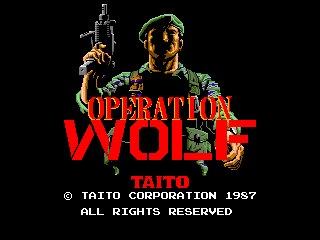Operation Wolf (Japan, prototype)
Game Information
| manufacturer | Taito Corporation |
| year | 1987 |
| clone of | opwolf |
| other clones | opwolfa opwolfb opwolfj opwolfjsc opwolfp opwolfu |
| genre | Gun |
| downloads | 103 |
Screenshots










Download Details
| split set | opwolfp.zip 87.96k |
| parent set | opwolf.zip 867.39k ↗ |
| standalone set | opwolfp.7z 754.89k |
Driver Details
| source | taito/opwolf.cpp |
| status | imperfect |
| emulation | good |
| savestate | supported |
| type | sound |
| status | imperfect |
Series Details
Screen Details
| display | screen |
| type | raster |
| orientation | horizontal |
| width | 320px |
| height | 240px |
| refresh | 60mhz |
Input Details
| player | 1 |
| type | lightgun |
| buttons | 2 |
| directions | N/A |
Chipset Details
| name | Motorola MC68000 |
| clock | 7.63mhz |
| name | Zilog Z80 |
| clock | 3.81mhz |
| name | Speaker |
| clock | N/A |
| name | YM2151 OPM |
| clock | 3.81mhz |
| name | OKI MSM5205 ADPCM |
| clock | 375.00khz |
| name | OKI MSM5205 ADPCM |
| clock | 375.00khz |
| name | Taito TC0060DCA volume control |
| clock | N/A |
| name | Taito TC0060DCA volume control |
| clock | N/A |
ROM Details
| name | size | crc |
|---|---|---|
| ic40 | 64.00k | 81f56008 |
| ic30 | 64.00k | d90cebb2 |
| ic39 | 64.00k | aeef5cfc |
| ic29 | 64.00k | 5ce89249 |
| ic10 | 64.00k | 684b40dd |
| b20-13.13 | 512.00k | f6acdab1 |
| b20-06.ic72 | 512.00k | 89f889e5 |
| b20-08.21 | 512.00k | f3e19c64 |